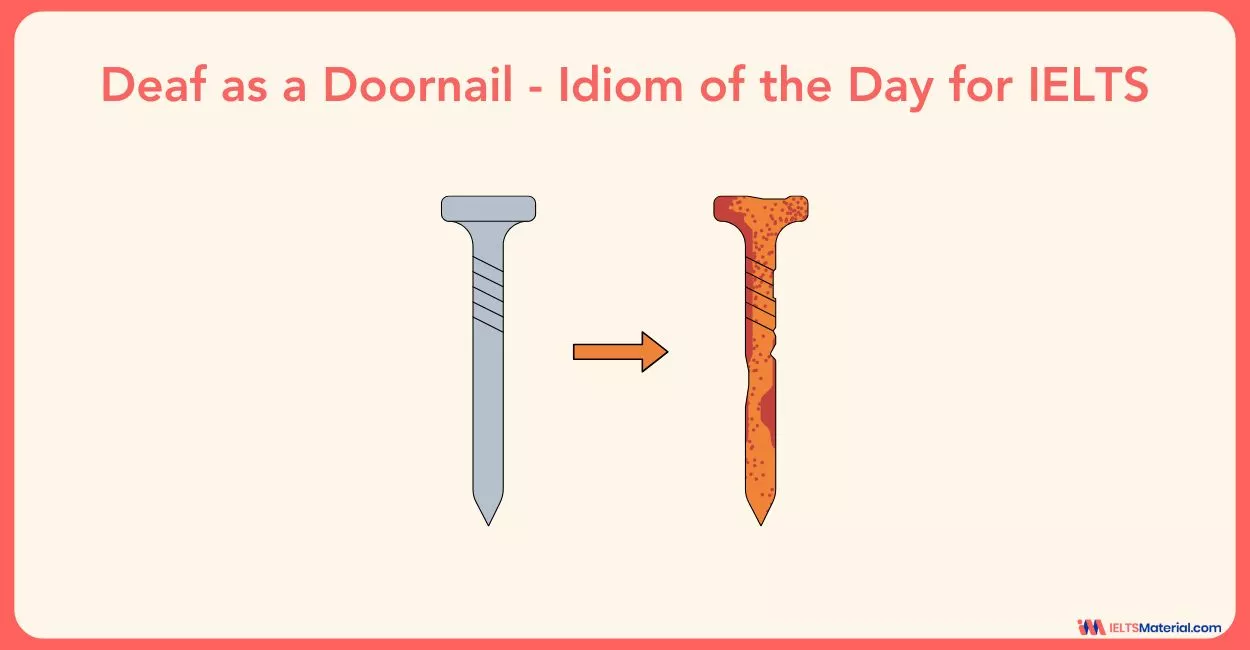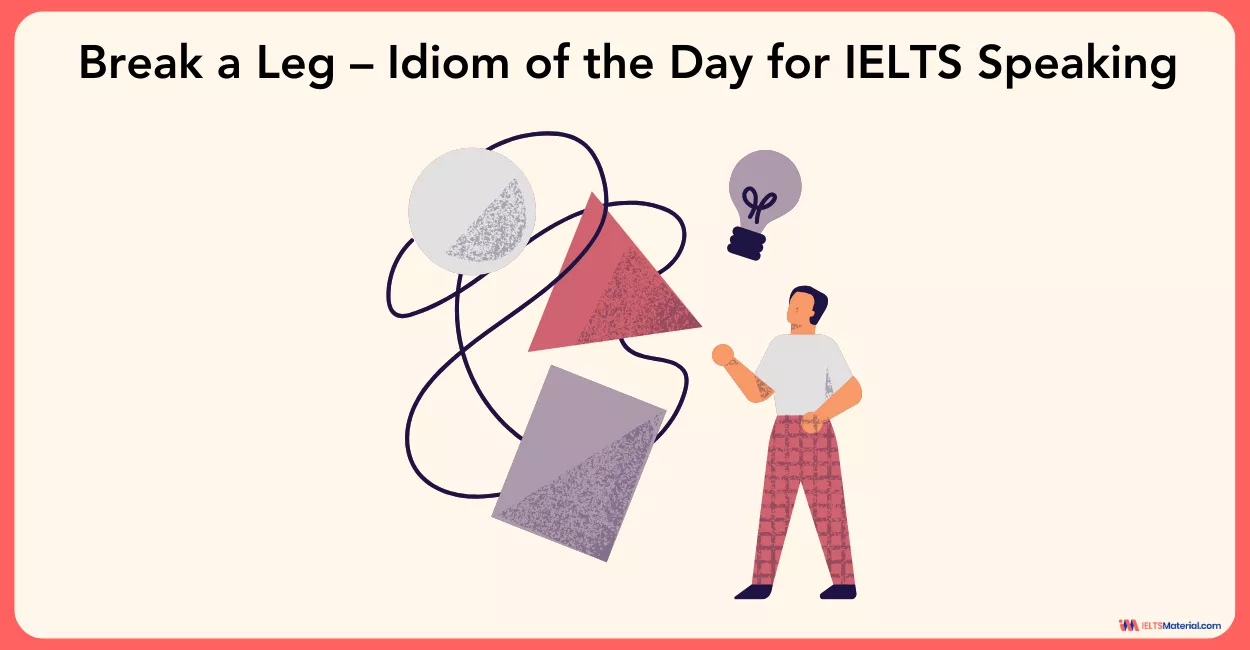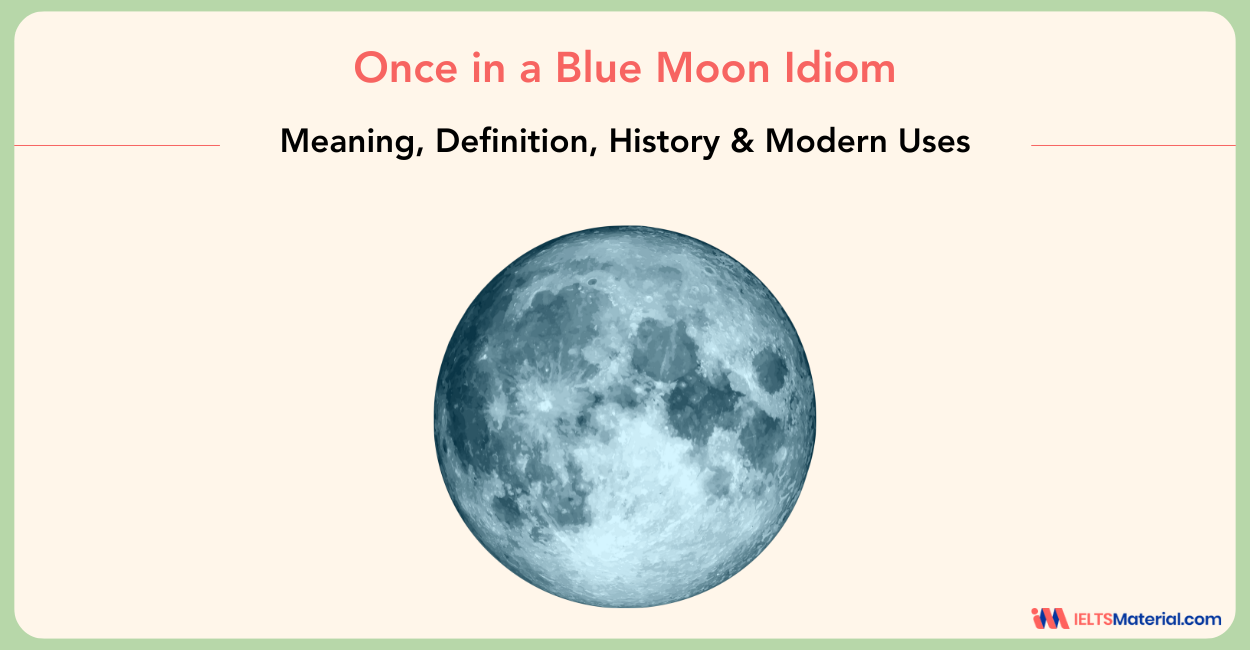Break a leg – Idiom of the day
Learn how to use the idiom “Break a Leg” in IELTS Speaking. Explore its meaning, history, and examples, with practice exercises to enhance fluency, enrich vocabulary, and confidently use idioms in your IELTS Speaking responses.
Table of Contents

Limited-Time Offer : Access a FREE 10-Day IELTS Study Plan!
Improving your vocabulary is one of the most effective ways to achieve a higher band score in the IELTS Speaking test. Using idioms naturally in your responses not only makes your answers more fluent but also helps you stand out. One such useful idiom is “Break a Leg”, which is used to wish someone good luck, especially before a performance or important event.
Meaning of Break a Leg
Definition: The idiom break a leg means to wish someone good luck or success in a challenging situation, particularly before a performance or competition. Despite sounding negative, it is used in a supportive and positive context.
Other meanings include:
-
Best wishes
-
Stroke of luck
-
To encourage someone before a big task
Pro tip: Use this idiom when talking about performances, competitions, exams, or any situation where someone is attempting something important.
Origin of the Idiom Break a Leg
The phrase originated in the theatrical world. Actors were historically superstitious and believed that directly wishing someone “good luck” could bring bad luck. To avoid this, they began saying “break a leg” instead.
One common theory is linked to the “leg line” on stage. In early theaters, actors had to stand behind the leg line until it was their turn to perform. Crossing the leg line and performing meant they would get paid. Wishing an actor to “break a leg” symbolized hoping they would have the opportunity to perform and succeed.
Over time, the phrase evolved beyond theater and is now commonly used in everyday English to wish someone success or good luck in various contexts.
Want to master more high-band IELTS vocabulary for the IELTS exam? Book a Free Demo Class today.
Usage of Break a Leg in Context
Here are some example sentences showing how the idiom is used in IELTS Speaking or real-life conversations:
-
“My first stage performance is scheduled for tonight.”
→ “Well, break a leg!” -
“Break a leg!” I shouted to him before his final auditions.
-
When the team went out for the final match, the coach said, “Break a leg!”
Pro tip: This idiom works well in both formal and informal contexts. You can use it in conversations about exams, sports competitions, interviews, or creative performances.
When to Use the Idiom Break a Leg
You can use this idiom in IELTS Speaking Part 1, Part 2, or IELTS Speaking Part 3 when:
-
Talking about preparing for a performance, competition, or important event.
-
Describing encouragement given to someone before a challenging task.
-
Discussing teamwork, motivation, or support in high-pressure situations.
Idiom Scenarios
Scenario 1
Sam: I’m nervous about my school play tonight.
Asha: Don’t worry, break a leg! You’ll do great.
Scenario 2
Mia: I have my first piano recital tomorrow.
Arjun: Break a leg! I’m sure you’ll impress everyone.
Sample Answer Using the Idiom Break a Leg
IELTS Speaking Part 2 – Describe a time when you were encouraged by someone:
"Last year, I was preparing for a debate competition. I felt quite nervous about speaking in front of a large audience. Just before it started, my friend came up to me and said, ‘Break a leg!’ This simple encouragement boosted my confidence, and I delivered my speech successfully. I realized that a few positive words can make a huge difference in overcoming nervousness."
IELTS Vocabulary Tip for Break a Leg
Using idioms like break a leg makes your IELTS Speaking answers sound natural, fluent, and expressive. It’s especially effective when discussing preparation, motivation, and performances. Remember to use it in the right context to avoid confusion.
Grab the newly launched Vocabulary for IELTS (Essential words for popular topics in IELTS) to level up your preparation.
Exercise: Break a Leg
Multiple-Choice Question
Q1: Before the actor entered the stage, her director whispered, “Break a leg.” What does it mean?
a) Get injured
b) Fail deliberately
c) Good luck
d) None of these
Correct Answer: c) Good luck
Fill in the Blank
-
Before my final piano recital, my teacher encouraged me saying, “__________!”
a) Bite the bullet
b) Break a leg
c) Spill the beans
d) Cut to the chase
Correct Answer: b) Break a leg
Why Learn Idioms for IELTS?
Idioms are essential for natural English and can:
-
Help you sound more fluent and confident.
-
Show the examiner that you understand figurative language.
-
Enhance your vocabulary score in IELTS Speaking.
However, make sure to use idioms naturally and in appropriate contexts. Overusing them can make your speech sound forced.
Related Idioms to Learn
-
A piece of cake – Something very easy.
-
Hit the nail on the head – Describe exactly what is causing a problem.
-
Burn the midnight oil – Work late into the night.
-
A blessing in disguise – Something good that seemed bad initially.
Learning idioms like these can improve your speaking variety, making your answers more engaging and high-scoring.
The idiom “break a leg” is a positive, encouraging phrase used to wish someone good luck before performances or important events. With its theatrical origin and practical use, it is a great idiom to add to your IELTS vocabulary. Practicing such idioms in speaking will boost your fluency, confidence, and overall band score.
If you’re aiming for a higher band score, make sure to practice idioms in context and check out the IELTS Exam Preparation Tips for Band Score of 8+ to further enhance your vocabulary and overall test performance.
Also Check:
Explore IELTS Resources

Start Preparing for IELTS: Get Your 10-Day Study Plan Today!
Recent Articles

Kasturika Samanta

Prity Mallick

Nehasri Ravishenbagam





Post your Comments